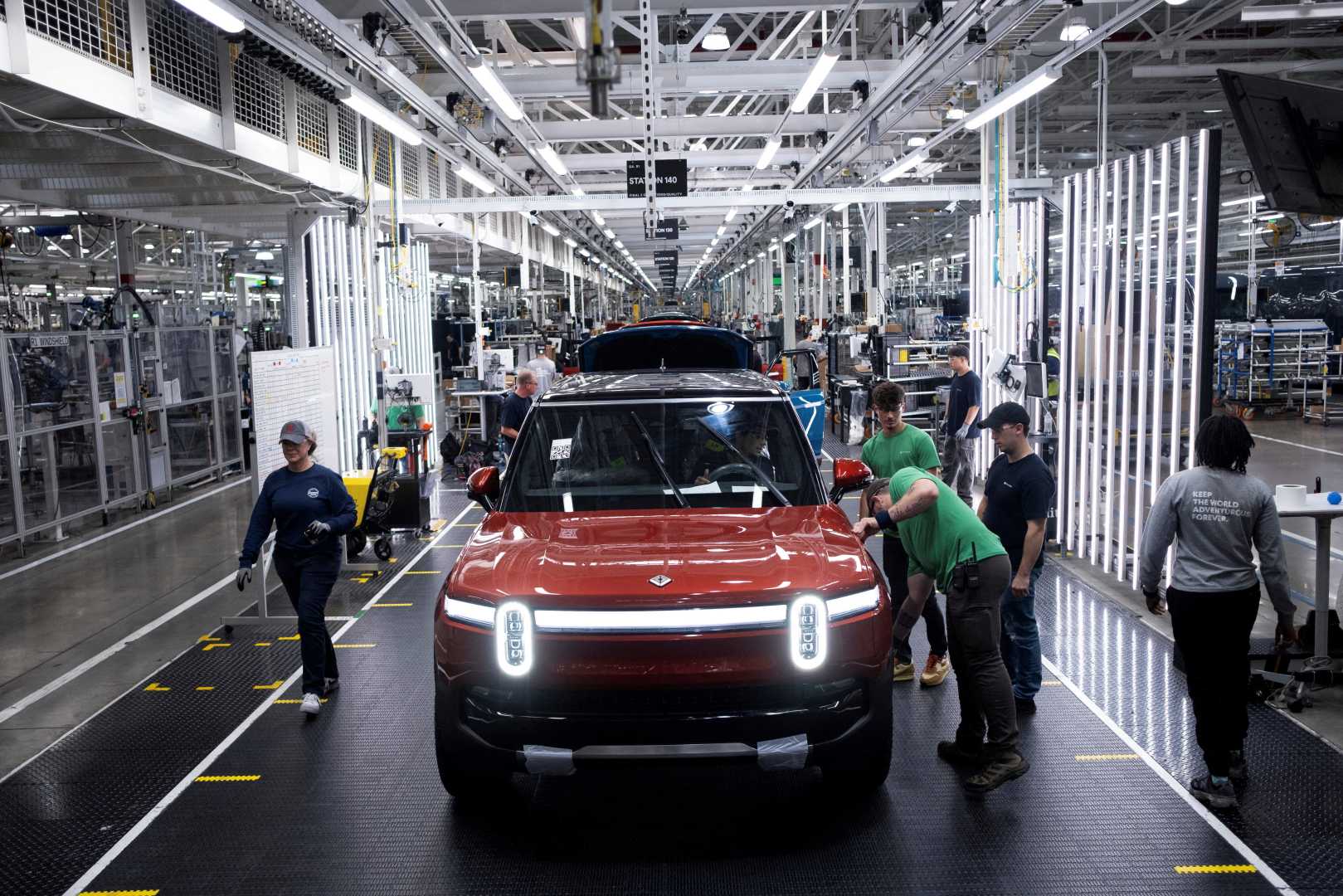Business
Rivian’s Future Hangs in Balance as EV Market Slows

IRVINE, Calif. — Rivian Automotive, the electric vehicle (EV) start-up, faces a critical juncture as the EV market struggles to meet growth expectations. With its stock down 1.59% to $14.21 as of Jan. 17, 2025, investors are grappling with whether to buy, hold, or sell Rivian shares amid a challenging market environment.
The company recently secured a $5.8 billion joint venture with Volkswagen, providing much-needed capital and access to advanced EV technology. Rivian will contribute its vehicle architecture and software, which Volkswagen plans to integrate into its 2027 models. “This partnership validates Rivian’s technology and gives it a financial lifeline,” said an industry analyst.
Rivian has also made strides in reducing production costs, slashing material expenses by 35% for its electric vans and R1T truck and R1S SUV models. These cuts are expected to help the company achieve gross-profit positivity when it reports fourth-quarter 2024 earnings on Feb. 20.
Despite these advancements, Rivian’s production declined by 13.5% in 2024, with only 49,476 vehicles produced. Deliveries rose modestly by 3% to 51,579 vehicles, hampered by consumer preference for hybrids and a temporary supplier shortage. “The supplier issue has been resolved, and we’re optimistic about 2025 production,” a Rivian spokesperson said.
Looking ahead, Rivian plans to launch its more affordable R2 SUV in 2026, priced at $45,000. This model aims to broaden its customer base and compete with mid-priced gas-powered vehicles. However, some investors remain cautious. “The EV market is still nascent, and Rivian faces stiff competition,” noted a financial advisor.
For those considering selling, reasons include shifting investment priorities or rebalancing portfolios. “If you’re bullish on AI or other high-growth sectors, it might make sense to reallocate funds,” the advisor added. Still, long-term EV enthusiasts see potential in Rivian’s innovative approach and strategic partnerships.
John Mackey, former CEO of Whole Foods Market and an Amazon subsidiary board member, holds positions in Rivian. The Motley Fool, which also holds positions in Amazon and Volkswagen, recommends Rivian for investors with a long-term outlook.












